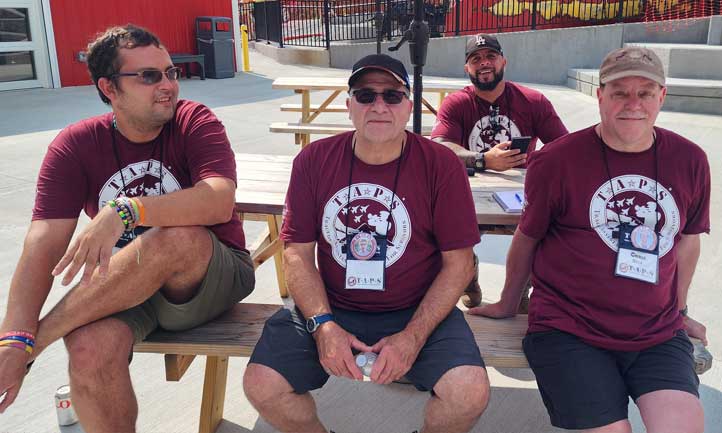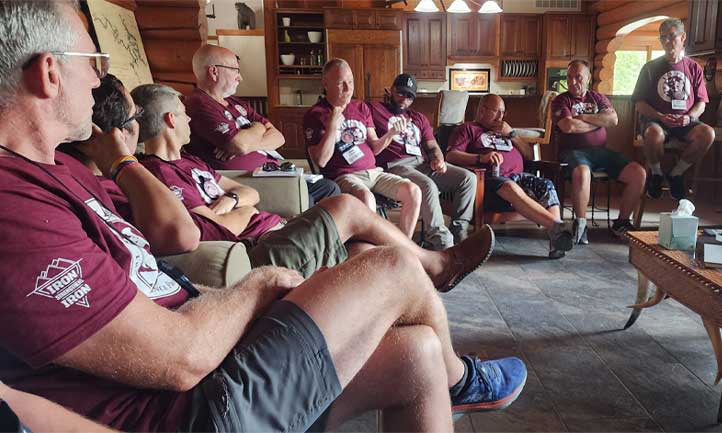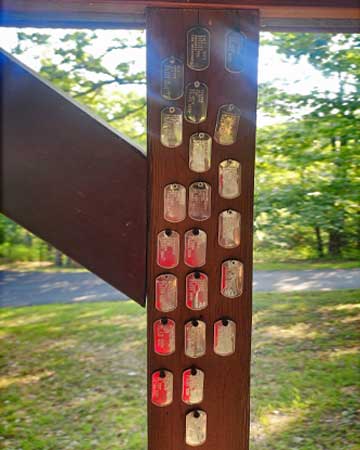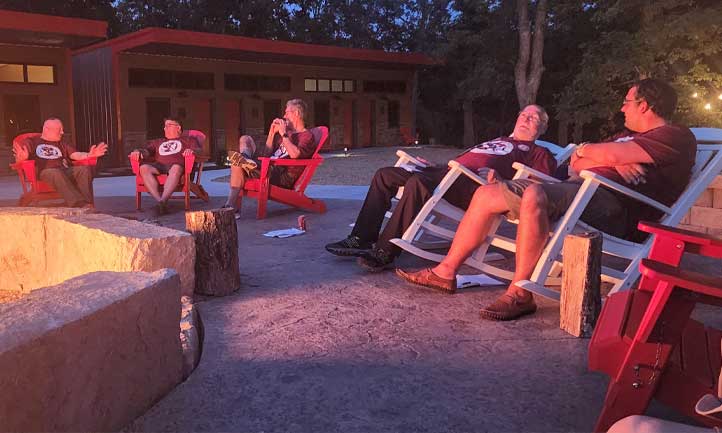Leaving the Grief Box Open
Author: Chris Beck
Over the past 18 months, I have struggled to get to my feet and find the path forward in my life since the loss of my son, Jarrod. I know I am on a healing path, but the steps have been small and the growth slow, but steady.
Men by nature, and to some extent by nurture, hide emotions and push them down — many of us were taught that emotions are a sign of weakness. When given the opportunity to attend a TAPS Men’s Retreat at Camp Operation BBQ Relief (OBR), I wasn’t sure how it would play out. I feared ego and pride would get in the way of growth — either for myself or other attendees. Out of the 20 men there, 18 of us had lost sons, and two young men had lost their fathers. Some men were several years out from their loss, while others were only a few months into their grief journeys, but this event changed lives — including mine. It impacted every single one of us in ways that cannot be described — only witnessed, but I’ll do my best.


The Grief Box
In the Men’s Program Online Group, we spend an hour and a half every other week in open forum discussions. Most times the topics grow organically, and we spend time sharing stories, feelings, and support. We open the “grief box” for a very short time — taking out some items, sharing them, then putting them back in the box and closing the lid for another two weeks. The retreat was different.
From the time we arrived, the grief box was open. In fact, at some point in the first 24 hours, nearly all of us did what we referred to as a “grief dump.” We took the box, turned it upside down, and shared everything inside with one or more men in attendance. The loss, the sadness, the relationships, the anger, the confusion — we put it all on the table.

Men who started out not saying a word were completely open and sharing without reservation by the end of our time together. No topic was off-limits. It was raw, open, honest, and enlightening; we all felt heard, and each session left us wanting more. Leaving the grief box open for five days invited connection, healing, honest frustration with things outside our control, and the reassurance that we weren’t grieving alone.
We spent one sunny morning at camp restoring a memorial gazebo. The next evening, we each received a dog tag with our lost one’s name on it. We rang a bell, said our lost one’s name, and then affixed it to the gazebo. While this sounds simple in writing, it was not simple in execution. Because our grief boxes had been opened for several days — contents all out in the open — this event called on each of us to reach deep inside that box and pull out the deepest emotions, the hurt, and the impacts of our loss. The strength it took, the vulnerability of each man, the intense emotions, the outpouring of support from each other, and the extreme grief and hurt — it all came out. The impact, emotion, and healing of this moment cannot be overstated. The emotions I faced in the gazebo were some of the most intense since Jarrod’s memorial service.


We, as men, are typically not vulnerable when our wives and children are present — whether at home, a memorial service, or even a seminar. We keep our emotions in check; we’re strong for everyone else. It takes time, trust, and the right setting for men to open up — to fully open our grief boxes and leave them open. We need that time to grieve, mourn, and release everything we hold inside.
Five days at Camp OBR was the equivalent of 18 months of other healing for me. Maybe it was the place or the right group of peers, or maybe it was just what I needed when I needed it, but that retreat changed my life. It opened my eyes to what was blocking my healing. It allowed me to let go of things that were only hurting me. It took me several days to put my grief back in the box after the retreat, but I didn’t rush it. I wanted to just sit with my grief for a while, so I did.
As I reflect now on my time there, I’m thankful for the support and the chance to open my grief box without feeling like I needed to quickly close it again, set it aside, and carry on with strength. What you’ve given me is a debt I can never repay, only pay forward.

TAPS Specialized Programming
TAPS provides specialized programming for both surviving men, through our Men's Program, and surviving women, through Women's Empowerment. Both programs offer online and in-person meeting opportunities that cater to the unique needs each population faces in grief.
Chris Beck is the surviving father of PO1 Jarrod Ray Beck, U.S. Navy.
Photos: TAPS Archives
